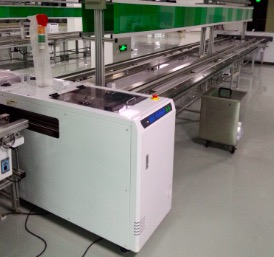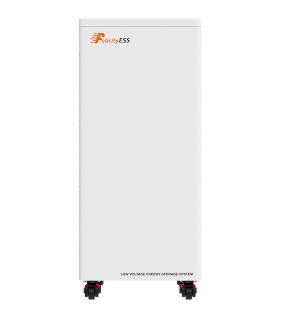目录
An AC power supply, also known as an alternating current power supply, is a crucial component in modern electrical systems. It provides alternating current (AC), where the flow of electric charge periodically reverses direction. This type of power supply is widely used in residential, commercial, and industrial settings due to its efficiency and versatility. This article explores the primary uses and functions of AC power supplies, highlighting their importance in various applications.

Key Uses of AC Power Supply
Residential Applications:
Household Appliances: In homes, AC power supplies are essential for powering a wide range of household appliances, including refrigerators, air conditioners, televisions, and lighting systems. The standard voltage and frequency (e.g., 120V/60Hz in the US or 230V/50Hz in Europe) ensure that these appliances operate efficiently and safely.
HVAC Systems: Heating, ventilation, and air conditioning (HVAC) systems rely on AC power to regulate indoor climate. The alternating current allows for the efficient operation of motors and compressors, which are integral to these systems.
Commercial and Industrial Applications:
Machinery and Equipment: AC power supplies are widely used in industrial settings to power machinery and equipment. Motors, conveyor belts, and manufacturing tools often depend on AC power for their operation. The reliability of AC power ensures continuous and efficient production processes.
Lighting Systems: Commercial buildings, factories, and warehouses use AC power for their extensive lighting systems. Fluorescent and LED lights, which are commonly used in these environments, operate on AC power to provide consistent and bright illumination.
Power Transmission and Distribution:
Efficient Transmission: One of the primary advantages of AC power is its ability to be transmitted over long distances with minimal loss. High-voltage AC power can be stepped down using transformers to lower voltages suitable for consumer use. This efficiency makes AC power the preferred choice for national and regional power grids.
Distribution Networks: AC power supplies form the backbone of electrical distribution networks. They enable the distribution of electricity from power plants to homes, businesses, and industries. The use of AC power in these networks ensures stability and reliability.
Functions and Benefits of AC Power Supply
Voltage Transformation:
Transformers: AC power can be easily transformed to different voltage levels using transformers. This capability is essential for efficiently transmitting power over long distances and distributing it to end users at safe voltage levels. Transformers work on the principle of electromagnetic induction, which requires alternating current to operate.
Frequency Regulation:
Stable Frequency: The frequency of AC power is regulated to maintain a consistent flow of electricity. Standard frequencies (50Hz or 60Hz) are used globally to ensure compatibility with electrical devices and systems. Stable frequency regulation is crucial for the proper functioning of sensitive electronic equipment.
Cost-Effectiveness:
Lower Costs: AC power generation and distribution are generally more cost-effective than direct current (DC) systems. The infrastructure for AC power is well-established, and the technology is widely available, making it a cost-efficient choice for powering a wide range of applications.
Compatibility and Versatility:
Wide Application Range: AC power supplies are compatible with a vast array of electrical and electronic devices. This versatility makes AC power suitable for virtually all types of electrical applications, from small household gadgets to large industrial machines.
Conclusion
In summary, AC power supplies are fundamental to the functioning of modern electrical systems. Their ability to efficiently transmit and distribute power, transform voltage levels, and regulate frequency makes them indispensable in residential, commercial, and industrial applications. The cost-effectiveness and versatility of AC power supplies further underscore their importance in powering the devices and systems that drive our daily lives. Understanding the uses and functions of AC power supplies highlights their critical role in maintaining the efficiency and reliability of our electrical infrastructure.
0






